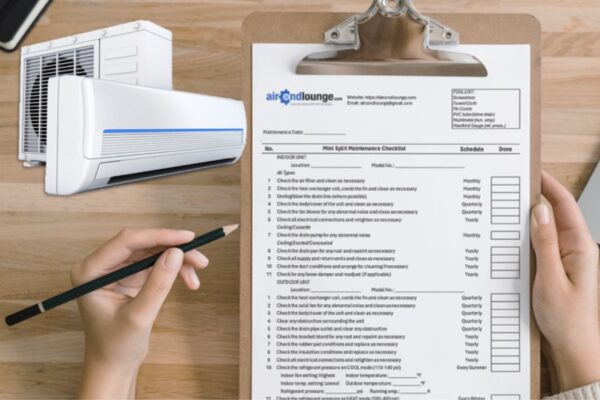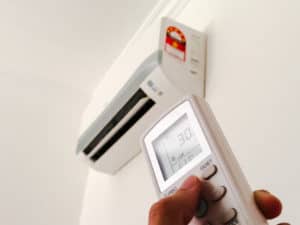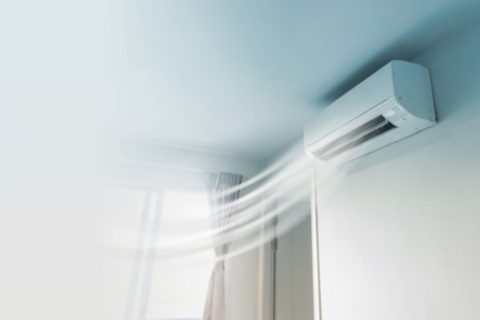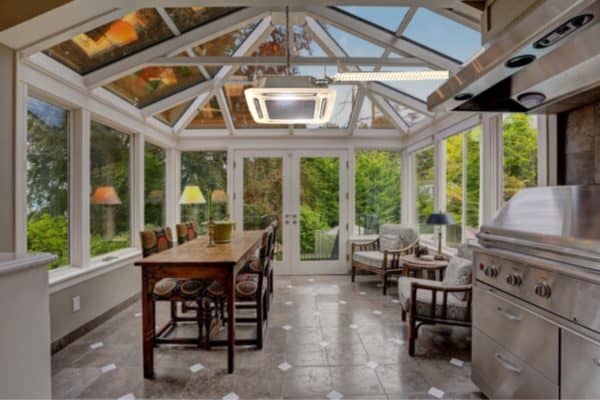Do Air Conditioners Emit Harmful Gases and Toxic Fumes?
Air conditioners are one of the contributors to global warming and thus, many people think that air conditioners emit harmful gases. However, it is not entirely true.
The truth is air conditioners do not emit any gases during operation. However, if the air conditioning copper pipe is not brazed properly, the refrigerant flowing inside the copper pipe can leak to the surrounding through brazing cracks. The refrigerant is harmful to both humans and the environment.
It is often misunderstood that using the air conditioner is bad for the environment because they emit harmful gases. Partially it is true, but we need to see the full picture to understand exactly what is the underlying issue.
Why Air Conditioners Don’t Emit Harmful Gases?
Air conditioners use a refrigerant (or Freon) to transfer heat from indoor to outdoor and therefore, reducing the indoor temperature. Modern air conditioners mostly use an R410A refrigerant which is a greenhouse gas that contributes to global warming.
However, the refrigerant is trapped inside the copper pipe of the air conditioner. During operation, the compressor pushes the refrigerant around the air conditioner in a closed-loop. If the copper pipes are brazed properly, the refrigerant will not leak.
Window Air Conditioner

Window air conditioners don’t emit any harmful gases during operation. As you can see from the above diagram, the refrigerant flow within a closed-loop inside the window air conditioner. Since the refrigerant pipe is not exposed, window air conditioners have a lesser chance to leak harmful refrigerant gases.
Split Air Conditioner
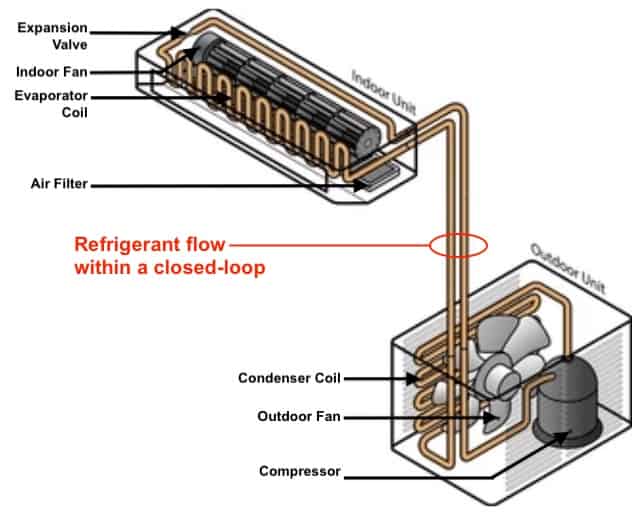
Split air conditioners are riskier than window air conditioners in terms of a refrigerant leak because they have a stretch of refrigerant pipe running from the indoor unit to the outdoor unit. However, many split air conditioners conceal their refrigerant pipes inside the wall, making them less prone to damage and leak.
See also if air conditioners exhaust is harmful.
What Cause Air Conditioners to Leak Gases?
The refrigerant in the air conditioner is flowing inside the copper pipe at high pressure. Thus, if the copper pipe is not brazed properly, the refrigerant can pop a hole and leak. In addition, if we accidentally drop the air conditioner and cracks its internal copper pipe, the refrigerant that we charge in later will leak as well.
Furthermore, when an air conditioner is being manufactured, installed and repaired, a small amount of refrigerant will leak to the environment because a small amount of high-pressure refrigerant will burst out whenever we plug in and out to fill or refill the refrigerant.
“ACs themselves only emit greenhouse gases (GHGs) when leakage or improper disposal of refrigerants occurs, though these refrigerants are extremely powerful GHGs that contribute to climate change.”
The Future of Cooling, International Energy Agency
So, many air conditioners are not disposed properly. Thus, refrigerants are leaking everywhere. All these actions are causing a collectively huge amount of the refrigerant used in air conditioners to leak to the surroundings and hurting the environment.
Why Air Conditioners are Bad for the Environment?
We know that refrigerant leaks from air conditioners are bad for the environment. Older air conditioners are mostly using an R22 refrigerant which not only causing global warming but also depleting the ozone. So, R410A refrigerant was developed and eliminate the ozone depletion problem but it is still contributing to global warming.
Then, a new R32 refrigerant was developed and adopted around the year 2015. R32 refrigerant is like an improved version of R410A that contribute lesser to global warming. However, there is still room for improvement.
Apart from the refrigerant, the biggest reason why air conditioners are bad for the environment is the high electricity consumption. In 2016, the total electricity used for air conditioning (cooling) accounted for nearly 10% of the global electricity consumption.
Electricity generated by burning fossil fuels, such as coal and natural gas, produces a lot of carbon dioxide. Globally, fossil fuels accounted for 65% of the total electricity generation in 2016. Therefore, high power-consuming air conditioners are indirectly causing more carbon emissions.
International Energy Agency published a great report on the future of cooling. I got all the information from the report. I encourage you to check it out as it may change your perspective on air conditioning.
We use refrigerants to drastically improve the efficiency of air conditioners. On one hand, we need refrigerants to reduce electricity consumption and therefore, reduce carbon emission. On the other hand, refrigerant leaks are damaging the environment.
However, cooling is needed now than ever before and the demand for cooling will only keep rising. Perhaps, solar power generation and high efficient air conditioner is the solution.
How Can You Tell If Your Air Conditioner is Leaking Gas?
Because the refrigerant is working in a high pressure state, any leakages will empty the refrigerant in a very short period of time. So, you might not smell or notice if your air conditioner is leaking gas.
However, if your room is not well-ventilated and the leaking happens in your room, you may smell a sweet scent. If that’s the case, do open the door and window to let the refrigerant gas out. Inhaling concentrated refrigerant gas is harmful and can lead to refrigerant poisoning.
Related Questions
Do Portable Air Conditioners Emit Harmful Gases? Portable air conditioners don’t emit harmful gases. However, it is a must to vent the portable air conditioners so that hot air can discharge outside. Nevertheless, if you choose not to vent, it won’t cause any harm but reduce the cooling performance.
If you have anything to add (or ask) about this topic, leave a comment down below!




